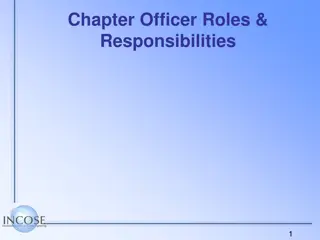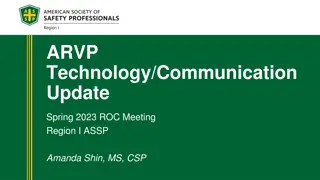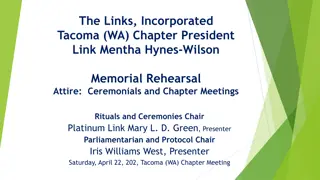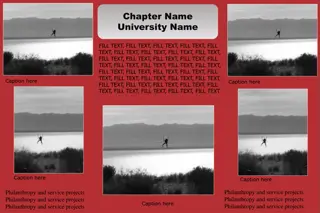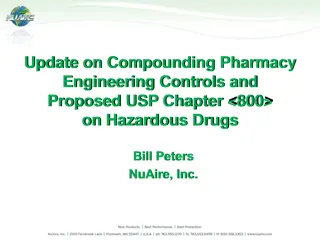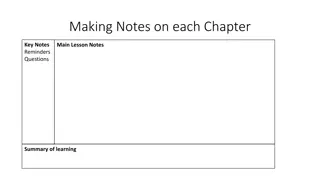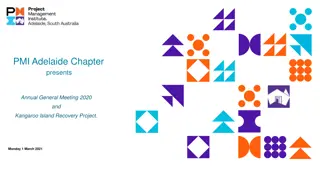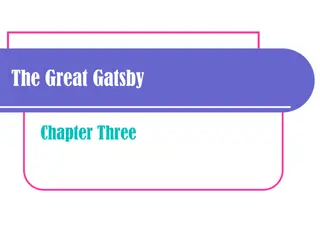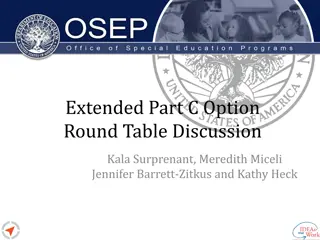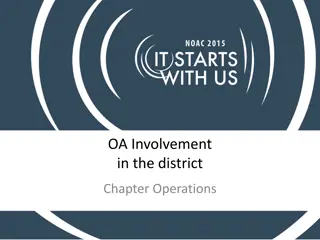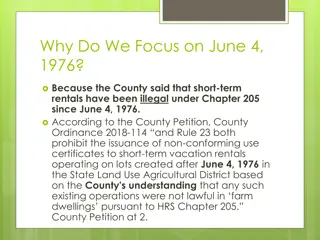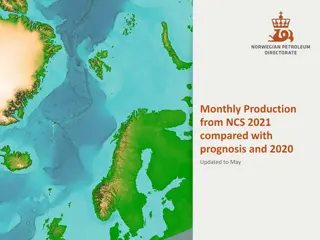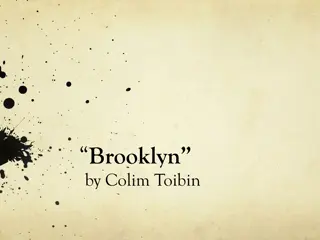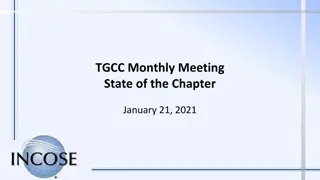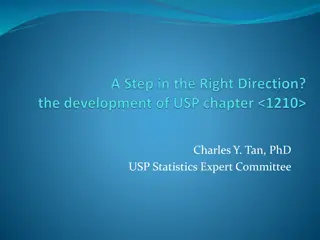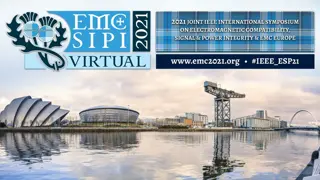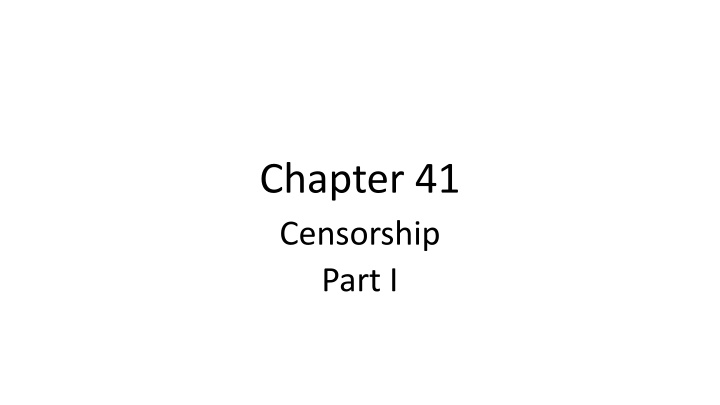
Censorship
Delve into the intricate world of censorship, publication of secrets, and governmental interference as seen through the Pentagon Papers case. Explore the ethical dilemmas faced by media outlets and the legal implications of disclosing classified information. Is the publication of secrets always harmful, or can it sometimes prevent catastrophic mistakes?
Download Presentation

Please find below an Image/Link to download the presentation.
The content on the website is provided AS IS for your information and personal use only. It may not be sold, licensed, or shared on other websites without obtaining consent from the author. If you encounter any issues during the download, it is possible that the publisher has removed the file from their server.
You are allowed to download the files provided on this website for personal or commercial use, subject to the condition that they are used lawfully. All files are the property of their respective owners.
The content on the website is provided AS IS for your information and personal use only. It may not be sold, licensed, or shared on other websites without obtaining consent from the author.
E N D
Presentation Transcript
Chapter 41 Censorship Part I
Burgers Dissent on Usual Approach of the Times Would it have been unreasonable, since the newspaper could anticipate the Government s objections to release of secret material, to give the Government an opportunity to review the entire collection and determine whether agreement could be reached on publication? Stolen or not, if security was not in fact jeopardized, much of the material could no doubt have been declassified, since it spans a period ending in 1968. With such an approach one that great newspapers have in the past practiced and stated editorially to be the duty of an honorable press the newspapers and Government might well have narrowed the area of disagreement as to what was and was not publishable, leaving the remainder to be resolved in orderly litigation, if necessary. . . .
Did the Times Publish Everything? In the case of the Pentagon Papers, the New York Times opted not to print portions of the history that were identified in an off-the-record briefing and in in camera court proceedings as most potentially damaging. [Ellsberg had not given the papers what he saw as damaging parts of the reports.]
Is the Publications of Secrets Always a Bad Thing? On Sept. 13, 1962, in a conversation with Orvil Dryfoos at the White House, (President) Kennedy remarked, I wish you had run everything on Cuba. If you had printed more about the operation you would have saved us from a colossal mistake.
The Lawyers Advice [The] lawyers . . . came to a meeting at the Times and angrily told Sulzberger [the publisher] and his colleagues that it would be a criminal offense to publish any of the material or stories based on it. Indeed, they said, possession of the papers was a crime at that moment. They refused to look at the documents themselves because, they said, they would then be committing an offense. . . . They advised the Times to return the documents and cancel the project.
Espionage Act c)Whoever, for the purpose aforesaid, receives or obtains or agrees or attempts to receive or obtain from any person, or from any source whatever, any document, writing, code book, signal book, sketch, photograph, photographic negative, blueprint, plan, map, model, instrument, appliance, or note, of anything connected with the national defense, knowing or having reason to believe, at the time he receives or obtains, or agrees or attempts to receive or obtain it, that it has been or will be obtained, taken, made, or disposed of by any person contrary to the provisions of this chapter;
The Reply to the Telegram We have received the telegram from the Attorney General asking the Times to cease further publication of the Pentagon s Vietnam study. The Times must respectfully decline the request of the Attorney General, believing that it is in the interest of the people of this country to be informed of the material contained in the series of articles. We have also been informed of the Attorney General s intention to seek an injunction against further publication. We believe that it is properly a matter for the courts to decide. The Times will oppose any request for an injunction for the same reason that led us to publish the articles in the first place. We will of course abide by the final decision of the court.
The Preliminary Injunction Hearing The Times was represented by Professor Alexander Bickel, who was brought in at the last minute when the Times s regular counsel declined to appear on behalf of its client. At the hearing the government stressed that a delay in publication was required to give the government and the court time to review the documents. [This was the judge s first case.]
The Permanent Injunction Hearing The Government argued based on the president s intrinsic powers, with little reference to the Espionage Act. When pressed by the judge, the Government would not identify a specific part of the Papers which endangered national security. The judge dissolved the injunction, allowing publication, but the government got a stay from the 2ndCircuit. Parallel proceedings against the Post also result in it being free to publish, but not until the stay was resolved. Gerhard A. Gesell is the judge in the Post proceeding. It is not his first case.
New York Times Co. v. United States, 403 U.S. 713 (1971)
Changes in the Record The government submitted new affidavits from defense agencies to buttress the government s case and attached a special appendix that highlighted certain testimony from the secret proceedings and listed specific pages of the Pentagon Papers that he said created particularly grave risks.
Justice Black . . . To find that the President has inherent power to halt the publication of news by resort to the courts would wipe out the First Amendment and destroy the fundamental liberty and security of the very people the Government hopes to make secure. . . . The guarding of military and diplomatic secrets at the expense of informed representative government provides no real security for our Republic.
Justice Douglas But the war power stems from a declaration of war. . . . Nowhere are presidential wars authorized. We need not decide therefore what leveling effect the war power of Congress might have.
Justice Brennan Even if the present world situation were assumed to be tantamount to a time of war, or if the power of presently available armaments would justify even in peacetime the suppression of information that would set in motion a nuclear holocaust, in neither of these actions has the Government presented or even alleged that publication of items from or based upon the material at issue would cause the happening of an event of that nature. . . . [How is this like the Steel Seizure Case?
What did Justice Harlan see as the Proper Role of the Court? the judiciary must review the initial Executive determination to the point of satisfying itself that the subject matter of the dispute does lie within the proper compass of the President s foreign relations power. Constitutional considerations forbid a complete abandonment of judicial control. Moreover, the judiciary may properly insist that the determination that disclosure of the subject matter would irreparably impair the national security be made by the head of the Executive Department concerned here the Secretary of State or the Secretary of Defense after actual personal consideration by that officer. [He would defer to the government discretion without a detailed look behind the assertions.]
Justice Blackmuns Warning If, however, damage has been done, and if, with the Court s action today, these newspapers proceed to publish the critical documents and there results therefrom [the aforementioned harm] to which list I might add the factors of prolongation of the war and of further delay in the freeing of United States prisoners, then the Nation s people will know where the responsibility for these sad consequences rests.
Justice White on the Limited Scope of the Ruling The Criminal Code contains numerous provisions potentially relevant to these cases. . . . [Justice White devotes five pages to a discussion of the criminal provisions.] . . . I am not, of course, saying that either of these newspapers has yet committed a crime or that either would commit a crime if it published all the material now in its possession. That matter must await resolution in the context of a criminal proceeding if one is instituted by the United States. In that event, the issue of guilt or innocence would be determined by procedures and standards quite different from those that have purported to govern these injunctive proceedings.
Was the Case a Win or Loss? Professor Bickel: [L]aw can never make us as secure as we are when we do not need it. Those freedoms which are neither challenged nor defined are the most secure. . . . Before June 15, 1971, through the troubles of 1798, through one civil and two world wars, . . . there had never been an effort by the federal government to censor a newspaper. . . . That spell was broken, and in a sense freedom was thus diminished. . . .
United States v. The Progressive, Inc., 467 F. Supp. 990 (W.D. Wis. 1979). Injunction against the publication of an article explaining how hydrogen bombs work. What is involved here is information dealing with the most destructive weapon in the history of mankind, information of sufficient destructive potential to nullify the right to free speech and to endanger the right to life itself. . . .A mistake in ruling against The Progressive will seriously infringe cherished First Amendment rights. . . . It will curtail defendants First Amendment rights in a drastic and substantial fashion. It will infringe upon our right to know and to be informed as well. A mistake in ruling against the United States could pave the way for thermonuclear annihilation for us all. In that event, our right to life is extinguished and the right to publish becomes moot. Mooted when the information appeared elsewhere. Most was already in the public domain.
Did Congress Intend to Punish Newspapers with 18 U.S.C. 793(e)? It will be noted that the word publication does not appear in [ 793(e)]. The Government contends that the word communicates covers the publication by a newspaper of the material interdicted by the subsection. A careful reading of the section would indicate that this is truly an espionage section where what is prohibited is the secret or clandestine communication to a person not entitled to receive it where the possessor has reason to believe that it may be used to the injury of the United States or the advantage of any foreign nation. This conclusion is fortified by the circumstance that in other sections of [the Act] there is specific reference to publication. The distinction is sharply made in Section 794 entitled Gathering or delivering defense information to aid foreign government. Subsection (a) deals with peace-time communication of documents, writings, code books, etc. relating to national defense. It does not use the word publication. Subsection (b) on the other hand which deals with in time of war does punish anyone who publishes specific information with respect to the movement, numbers, description, condition, or disposition of any of the Armed Forces, ships, [etc.] [District court in NYT v. US]

